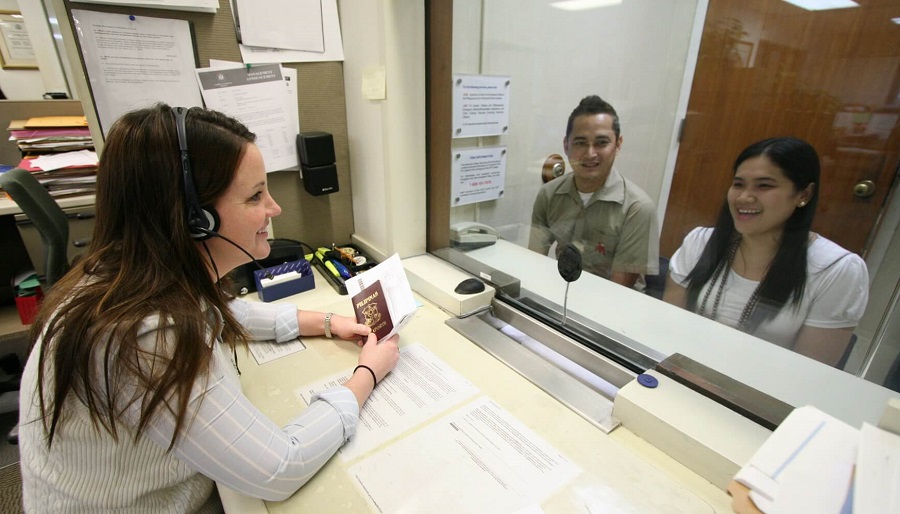

To obtain a green card for your spouse, you’ll start the process by filing Form I-130, Petition for Alien Relative, with U.S. Citizenship and Immigration Services (USCIS). You will also need to submit evidence of a bona fide marriage. “Bona fides” is Latin and translates to “good faith.” It is usually used in a legal context to describe something as being genuine. This goes beyond submitting a marriage certificate. Underestimating the requirement can lead to a denial.
Table of ContentsFiling the I-130 petition is just the first step in the family-based immigration process. The petition is how petitioners establish that they have a qualifying relationship with a non-citizen spouse. In fact, immigration officials will ask additional questions about the relationship during the green card interview. As a conditional resident, the scrutiny will continue. A marriage certificate is necessary, but more evidence is required to prove a bona fide marriage. It’s never too early to begin collecting this evidence.
CitizenPath helps our customers through the process. In addition to helping you prepare the I-130 immigrant visa petition, you'll get filing instructions customized for your answers on the petition. Our service provides a checklist of supporting documents for you to submit with your I-130 petition. What's more, customers that use our service get a money-back guarantee of approval.
A bona fide marriage is one that is real. Each spouse is genuinely in love with the other, and both intend to stay together forever. This is in contrast to a marriage that was entered for the purposes of circumventing immigration laws – otherwise known as a fraudulent marriage or sham marriage.
USCIS is extremely effective at identifying fraudulent marriages. It’s important that you prove to USCIS that your marriage is the real deal. A marriage certificate is only a document that proves you are married. It doesn’t demonstrate how you and your spouse are actually planning to live a life together. You’ll need to provide copies of other documents that prove your bona fide marriage. If possible, you’ll want to prove that you are living together, joining your finances, spending time together, and perhaps having children. These are good indicators that your marriage is the real thing.
You will need to submit several supporting documents as part of your I-130 petition package. Evidence of your bona fide marriage is a big part. This article provides an exhaustive list of examples, but it’s not necessary that you include everything. In many cases, particularly for recently married couples, it will may not be possible to obtain many of these documents.
If you and your partner have not yet married but are exploring the possibility of a green card, now is the time to start gathering evidence. As you progress through your engagement, marriage, and eventual move to the United States, consider the list that follows. You can proactively accumulate the evidence you’ll need to prove a genuine, bona fide marriage.
Joint ownership of real estate or other major property is compelling evidence of a bona fide marriage. If you have owned property together (past or present), gather evidence such as a deed showing both spouses’ names. Other relevant documents may include the purchase contract, closing papers, mortgage agreement, mortgage account statements, property tax bills, home repair documents, and utility bills.
If you leased property together, gather evidence of the rental agreement, rent receipts, utility bills, and any correspondence between you and the landlord. Examples of documents to prove a bona fide marriage may include:
If you have a bank or other financial account together, provide the records – from the account opening records to the current account statement. Someone who is “faking” a marriage for the purposes of getting a green card is generally not willing to combine financial assets. That’s why these are strong examples of a bona fide marriage:
It’s meaningful to show that you share responsibility for financial loans, other financial liabilities, and are generally taking steps to care for each other’s long-term welfare. Examples of documents that show you have taken on debt together or have joint financial plans include:
Having children together is excellent evidence, but it definitely is not a requirement. Some couples going through the immigration process may have been married for several years or have children from a previous marriage. Examples of documents that show you are raising children together include but are not limited to:
Of course, a marital relationship is about more than bank accounts and long-term financial planning. Plus, you probably don’t have many combined financials if you’re young and recently married. Your relationship probably includes many real moments that are evidence of your genuine affection for each other. Your experiences with one another as well as friends and family count for something. Examples include:
Make an effort to submit as much evidence as you can to prove the bona fides of your marriage. More evidence is generally better. Someone who has been married for five years and living together with their spouse should generally have more evidence accumulated over those years. On the other hand, newlyweds who don't even live in the same country may have very few of the items listed above.
If the documents are voluminous, provide a representative sample for immigration officials to review. For example, if you have a joint bank account for the two years that you’ve been married, submit one statement for every three months. Include the oldest, most current, and a sampling from the middle. For photos and other communication, use a variety that spans the length of your relationship and contains the most persuasive evidence of a bona fide relationship. When preparing evidence for their clients, many immigration lawyers will organize evidence in separate categories (such as the ones listed above) and sort into divided, labeled sections. You can use a simple cover sheet for each section.
Obtaining documents from the above list can be difficult for many new couples that haven’t lived together for very long or are in the process of relocating to the United States. In this scenario, it’s understandable you’ll have less documentation proving that you’ve co-mingled financial resources and more attention will be on other evidence. For couples without lots of evidence, letters from friends and family can help make the difference. These letters of support used for legal purposes are known as affidavits.
Affidavits are letters from third parties (friends, family, religious leaders, neighbors, etc.) that can provide written testimony of the bona fides of the marital relationship. Each affidavit must contain the full name and address of the person making the affidavit and date and place of birth of the person making the affidavit. Additionally, it should include complete information and details explaining how the person acquired their knowledge of your marriage. This is an opportunity for the author to explain why they believe your marriage is the real thing. The author can write about their experiences with you, attendance at the wedding, knowledge of your plans for the future, or any other anecdote that demonstrates you have a bona fide marriage.

Learn how to create a strong I-130 affidavit for your spouse. Our sample affidavit and expert tips will help you…
USCIS weighs some evidence more heavily than other evidence. In other words, they will consider some of your documents to be more convincing proof of a bona fide marriage as compared to other documents. Generally, evidence that shows you are combining your financial life together is strong evidence. Documents such as joint tax returns, bank accounts, and life insurance are great. These are really hard to fake. On the other hand, photos, love letters, travel, and affidavits carry less weight. A determined person could fake these items.
Some factors in your relationship can be a red flag for immigration officials. They identify factors that indicate the possibility of a fake or fraudulent marriage. According to the Adjudicators Field Manual (AFM), a guide formerly used by USCIS officers to make determinations on immigration cases, there are several factors that could warning signs of possible marriage fraud. If one or more of the following situations applies to your relationship, it’s likely that your case will receive some additional scrutiny:
By themselves, these factors will not disqualify you. There can be legitimate explanations. You’ll need to be ready to explain these differences and discrepancies. And more persuasive evidence of a bona fide marriage should be submitted with the Form I-130 petition. In these situations, you may also want to consider a consultation with an immigration lawyer.
Regardless if you have your green card interview at U.S. embassy (consular processing) or USCIS office (adjustment of status), the topic of a bona fide marriage will arise again. The immigration official will ask questions until they are satisfied that you have a valid, good-faith marriage and before granting any immigration benefit. You can expect the officer to ask questions such as:
When you attend the green card interview, take a copy of the I-130 petition that was filed on your behalf, copies of all the evidence that you submitted, and updated copies of statements and documents if applicable.

Discover the key questions asked during a green card interview for spouses. Learn how to prepare and increase your chances…
If your marriage is less than two years old at the time you are granted a green card, USCIS will designate you as a conditional permanent resident. They will issue a two-year green card (instead of the normal 10-year green card). In the 90-day period before the card expires, you’ll need to file Form I-751, Petition to Remove Conditions on Residence, in order to convert to a lawful permanent resident with a 10-year green card. During the petition process, and possibly an I-751 interview, you’ll again need to provide evidence of your bona fide marriage. When you prepare for this process and proactively gather the documents that you’ll need, it’s very possible to avoid the interview.
CitizenPath provides simple, affordable, step-by-step guidance through USCIS immigration applications. Individuals, attorneys and non-profits use the service on desktop or mobile device to prepare immigration forms accurately, avoiding costly delays. CitizenPath allows users to try the service for free and provides a 100% money-back guarantee that USCIS will approve the application or petition. We provide support for the Immigrant Visa Petition Package (Form I-130), Adjustment of Status Package (Form I-485), and several other immigration services.
Want more immigration tips and how-to information for your family? Sign up for CitizenPath’s FREE immigration newsletter and SAVE 10% on our immigration services Citizen or Permanent Resident" width="300" height="177" />
Citizen or Permanent Resident" width="300" height="177" />
Get an overview and steps in the application process for a U.S. citizen or permanent resident to petition for a spouse for an immigrant visa (green card).…Continue Reading →

We provide an overview of the purpose for a police clearance certificate, where to obtain one, and how to make sure everything is correct submitted for the purposes of getting a green card or K-1 visa.…Continue Reading →

Filing Form I-130, Petition for Alien Relative, for a spouse has additional requirements. Our I-130 checklist for spouses helps you prepare the petition package correctly.…Continue Reading →